CAMP BUCCA, Iraq - Soldiers patrolling the area around al-Zabair April 23 were equipped with their usual protective gear and equipment, but recently they've added one more tool in the form of a small laminated card.
1st Platoon Soldiers with D Company, 1st Battalion, 15th Regiment, 3rd Brigade, 3rd Infantry Division at Camp Bucca are now carrying the card with the phone number to a new tip-line that is helping U.S. and Iraqi security forces gather information about the area straight from Iraqi citizens.
"The tip-line is just a way for somebody willing to help their area to call in with information", said 1st Lt. Stephen Tyminsk, platoon leader for 1st Platoon.
"Some people want to talk but are afraid for their lives or their jobs," said the Reading, Mass. native.
The number is to a cell phone where tips can be called in or sent by text message.
"They can call about general information," said Tyminski, "Though some calls we get are about [interpreter] jobs, or calling with complaints about infrastructure, but most of the time it's straight up intel. It's just another information source."
While talking with locals, Soldiers keep the number on-hand and pass it on if they meet someone who seems to have something to tell but is afraid to do it in the public eye. By being selective in sharing the number, the Soldiers hope to increase their chances of getting valuable information, said Tyminski.
Tyminski said he knows which of his Soldiers have good people skills - such as Sgt. Travis Daniel, team leader with 1st Platoon, D Co., 1st Batt., 15th Regt. - and ensures they have cards when the unit conducts patrols.
"If I meet someone who seems aggravated, maybe about a job or something, and they obviously want to make it better I will give them a card," said Daniel, a Buena Vista, Ga. native.
Direct information from Iraqi citizens helps D Co. pursue missions that will benefit them the most as well as keep security forces and citizens safe by getting dangerous items off the streets, said Tyminski.
Recently, the tip-line had a significant tip that led to the capture of 18 high explosive mortars and other materials for creating improvised explosive devices, as well as a detailed terrain model of an entry control point, according to Tyminski.
Earlier in their deployment, the Soldiers of D Co. learned the value of a tip-line while stationed at Contingency Operating Site Echo, in the northern part of United States Division - South, and sought to implement one after they moved to Camp Bucca, said Tyminski.
"We got together as a company and determined we needed this sort of asset. We said, 'If we're going to be down here then we're going to do this right,'" he said.
Useful information gathered makes its way to meetings between Iraqi and U.S. forces where they swap intelligence and coordinate their efforts.
Iraqi Security Forces play a large role in pursuing or investigating tips as the job of raiding suspected structures for weapons caches is in their hands, in accordance with the Status of Forces Agreement.
The ISF are also most familiar with the areas where they operate.
In the case of the terrain model, the ISF were able to determine that it was a model of an entry point in Basra indicating a possible vehicle-borne IED attack was prevented, said Tyminski.
"It was all based on information from al-Zubair," he said.
Aside from the raw intelligence provided from the tip-line, there are also ways it benefits the relationship between U.S. and Iraqi forces and local Iraqis, said Tyminski.
"I think it helps them feel empowered," he said.
The tipster responsible for helping find the terrain map and explosives cache was a former ISF member who had to quit after being harassed. After receiving the tip-line number and sharing his information, he became a part of the fight once again, said Tyminski.
"It shows that there are still ways to help," he said.
Tyminski said he feels the tip-line is a success.
"I'm pretty pleased with it," he said. "As far as my platoon goes, my guys ask what tips came in from the cards they passed out and sometimes I have to tell them it was just a guy asking about an [interpreter] job."
Daniel said he has heard back about the effects of his efforts.
"I know for sure that several of the people I've given the number to have contacted us," he said. "The intel guys said it's good info - that's good enough for me."
Ultimately, the information leads to the safety of Iraqi citizens and security forces as well as U.S. forces - as with the case of the map and explosives cache, said Tyminski.
"I've had people from my past deployments get hit with IEDs so it's best we can head those off before they get started," he said. "That was a potential 26 IEDs we got off the road, so, we'll take that."
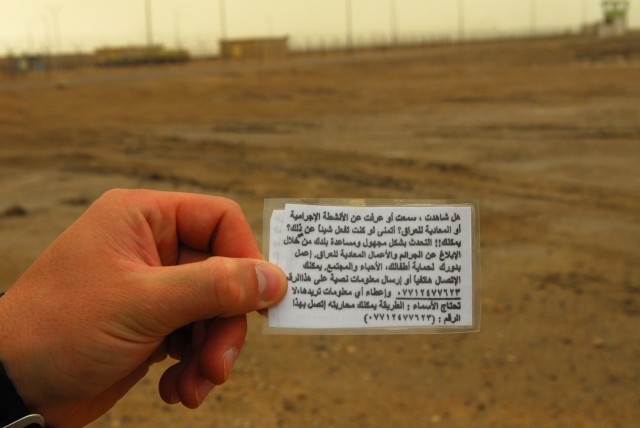
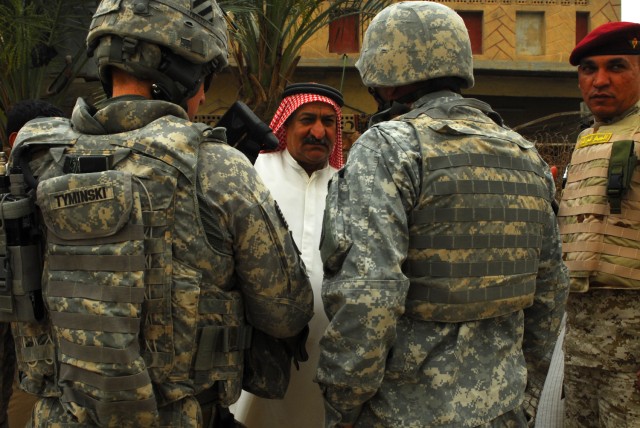
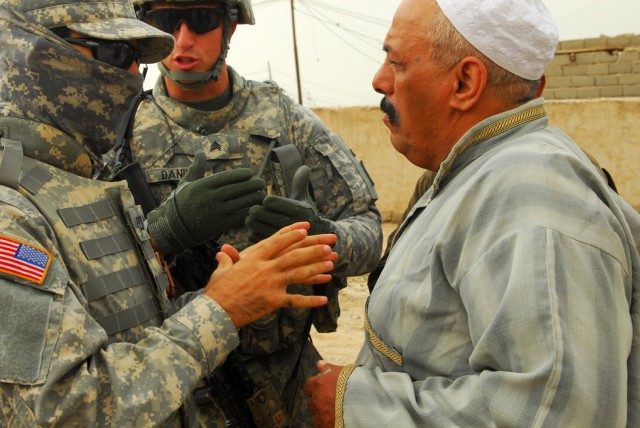
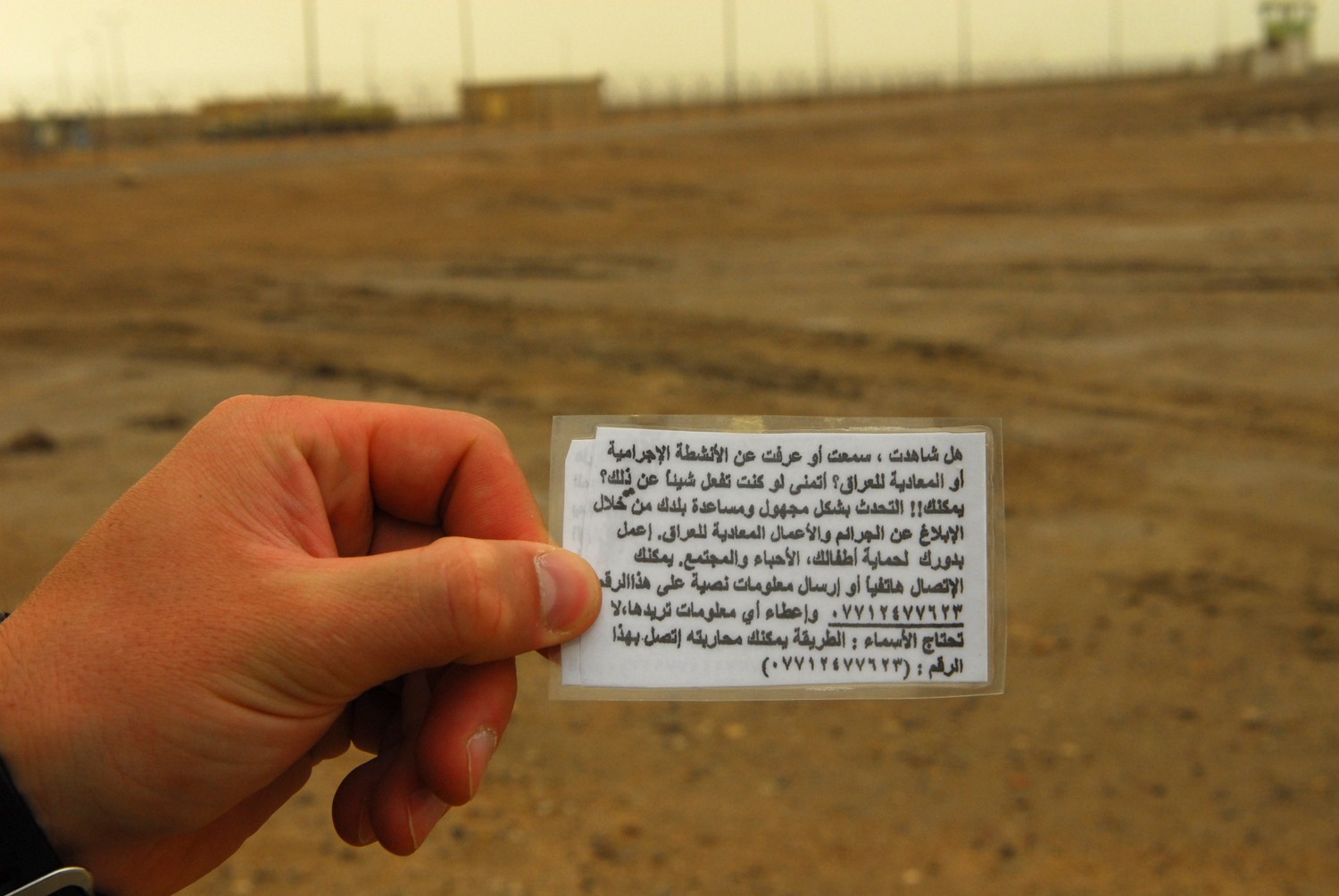

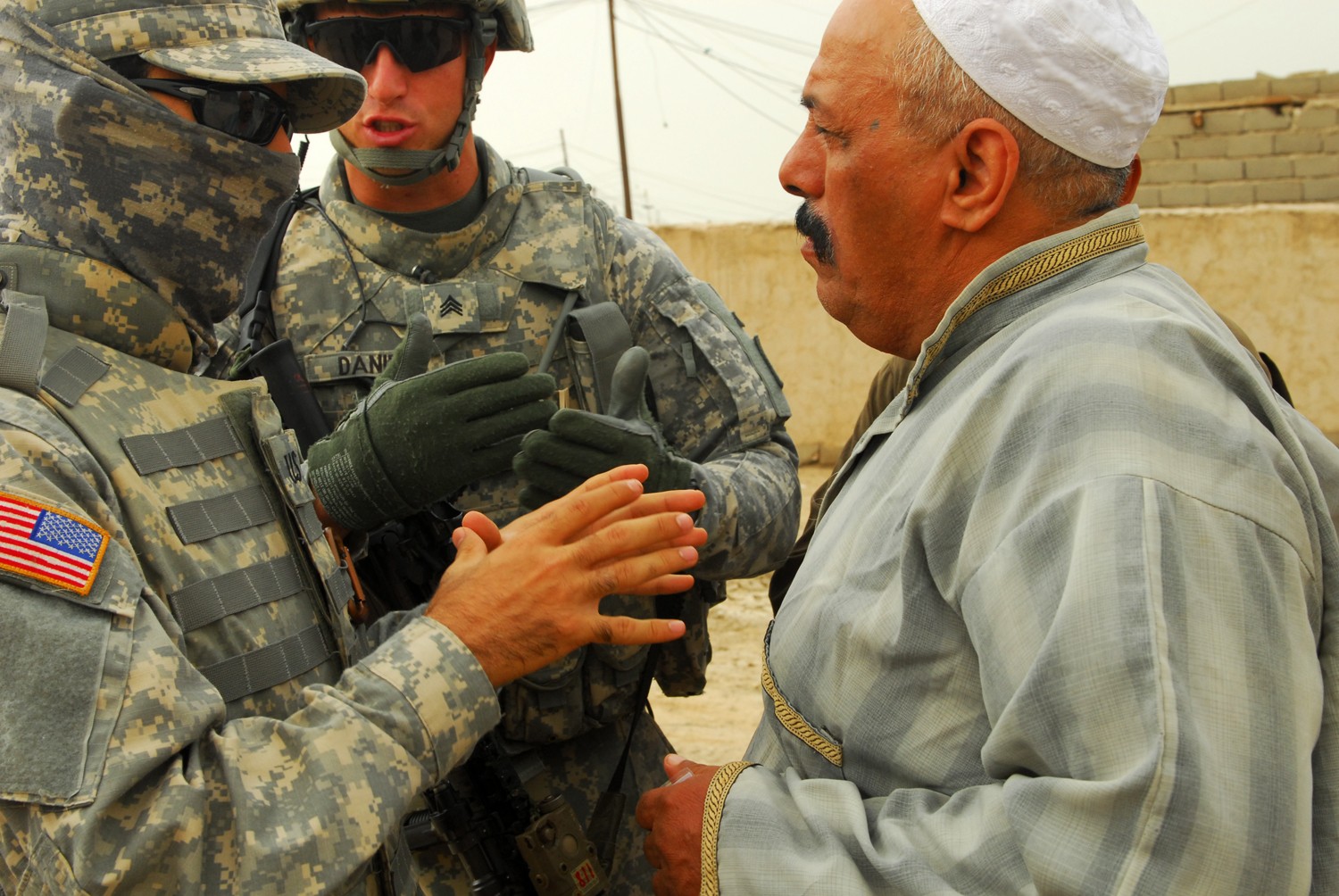
Social Sharing